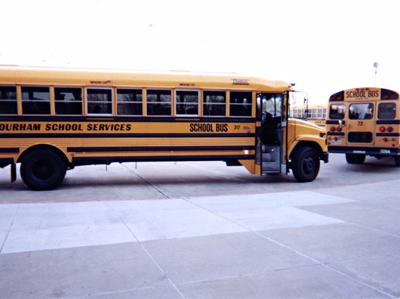All Nonfiction
- Bullying
- Books
- Academic
- Author Interviews
- Celebrity interviews
- College Articles
- College Essays
- Educator of the Year
- Heroes
- Interviews
- Memoir
- Personal Experience
- Sports
- Travel & Culture
All Opinions
- Bullying
- Current Events / Politics
- Discrimination
- Drugs / Alcohol / Smoking
- Entertainment / Celebrities
- Environment
- Love / Relationships
- Movies / Music / TV
- Pop Culture / Trends
- School / College
- Social Issues / Civics
- Spirituality / Religion
- Sports / Hobbies
All Hot Topics
- Bullying
- Community Service
- Environment
- Health
- Letters to the Editor
- Pride & Prejudice
- What Matters
- Back
Summer Guide
- Program Links
- Program Reviews
- Back
College Guide
- College Links
- College Reviews
- College Essays
- College Articles
- Back
Private School. What the Heck?
In 21st century America, the rise in public education has coincided with a rise in the number of private schools. The key difference between a public and a private school is how they are paid for because private schools are paid for by their student’s tuition and public schools are paid for with local property taxes. Where a family chooses to send their kids to private school or public school is an important decision. It is unethical for families in the middle and upper class of America to send their kids to a private school because they do not serve the common good.
Private schools are unethical from a utilitarian perspective because they do not maximize the happiness for the majority of society. Public schools maximize a community’s happiness by offering equal opportunities for everyone to succeed. Many affluent parents send their kids to private schools to give them an education they believe to be superior and more sheltered than that from a public school. Sending your child to a private school means a parent is neglecting their community’s public schools and pouring resources into selective organizations that do not serve to help the larger communities. Private school’s student bodies are often made up of students who do not have disabilities or are on the spectrum but instead made up of affluent white students of privilege.
Private schools are unethical because they are putting a consequential lense on education which should be a non utilitarian system that serves the common good. Education is a public good that everyone has a right to, so private school’s selective admission policies are non-ethical in a nonconsequentialist, duty based and fairness ethics approach. To be ethical in a nonconsequentialist and fairness education system is to educate everyone and teach everyone no matter their race, ethnicity, disability, or socioeconomic status. Private schools are unethical because they will choose to not admit those who are unable to pay tuition and are thereby withholding from that person a quality education. Financial aid is offered by many schools but often there is not enough is offered to cover full tuition and organizations cannot afford to have their entire student body on financial aid. Financial aid does not make a private school education ethical because financial aid will not cover every cost of the uniform or activities or even full tuition. Next time think twice before sending your kid to a snotty preppy private institution.

Similar Articles
JOIN THE DISCUSSION
This article has 0 comments.
